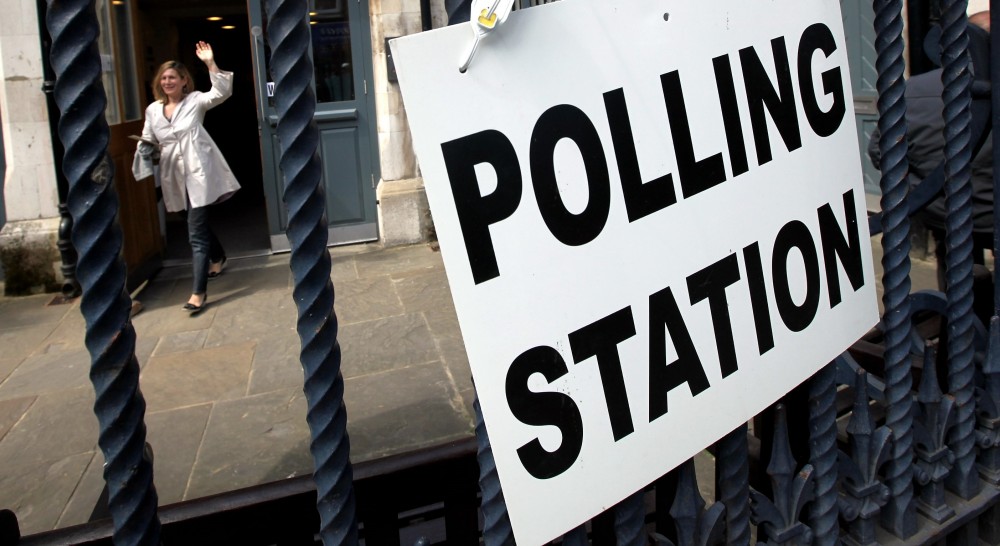Hanging in the balance
The right to vote is one of the most powerful tools in a democracy. It acts as a great equaliser, enabling any citizen – whether rich or poor, black or white, male or female – to have a say in the way their country is run.
But the right to vote in the UK has not always been universal. Before 1918, only men with property could cast their ballot. This meant that the vast majority of the country’s population – the poor, women and minorities – were denied a chance to have their voice heard.
Voting laws were created explicitly by those at the top – the rich and the powerful – to exclude anyone who might threaten their tenuous supremacy.
Now, of course, any citizen 18 years and older can vote. But universal suffrage enshrined in law can still be threatened via the backdoor. And that’s exactly what the current Tory government – again representing the rich and powerful – are now quietly planning.
In 2013, the coalition government began changing the way we register to vote. The new system, known as individual electoral registration (IER), requires potential voters to individually sign up to vote, signalling a change from the previous process that allowed group registration.
The old system enabled university students to be put quickly on the electoral roll – their institutions block registered those living in student halls. Families living in the same household, too, could register all eligible members as a group.
The transition to IER is a complex and time-consuming one, forcing already resource-strapped councils to verify voters in their old elector registers by matching them to information in tax or benefits forms.
Originally, IER was to be slowly phased in until December 2016. But in July, and without much fanfare, Tory minister for parliamentary reform John Penrose tabled a written statement that sped up the transition phase by an entire year.
Now, councils must rush to verify genuine voters in only two months’ time. If a voter can’t be verified by December 2015, they automatically drop off the register and will be forced to re-register.
New data from the campaigning group Hope Not Hate indicates that the rush to finish the transition to the new system will purge 1.9m voters from the register, adding to the 8m still not registered to vote.
And just who are these nearly 2m people being wiped from the register? They are the same disadvantaged groups of people most harmed by the present Tory government and its austerity agenda, and so the groups least likely to vote them back in – young people, ethnic minorities, urban dwellers, and transient people living in private rented accommodation.
Massive reduction
Certain boroughs in London will see a massive reduction in the number of registered voters. In Hackney, for example, nearly a quarter of its registered electorate will instantly disappear.
Glasgow is set to lose 13.3 per cent of its electorate, while Birmingham will lose 7.7 per cent.
The government has claimed that it has introduced IER to prevent voter fraud. But the push to turbocharge IER’s transition period has an altogether more sinister motive – one that could see the Conservatives locked into power for decades.
Starting in April of next year, the government will begin to redraw constituency boundaries. The number of constituencies will also be reduced from 650 to 600. Boundary changes are scheduled to be confirmed in 2018, just in time for the 2020 general election.
But what at first glance seems like an attempt to create more uniform constituencies is, in practice, an exercise in blatant gerrymandering. This is because new constituencies will not be based on population – they’ll be based on the number of registered voters.
And the register that will be used in redrawing boundaries will be the existing register in December 2015 – the exact same register that, under IER, has wiped out 2m voters in a matter of months.
The result will be an immense swing in representational power from urban, more deprived areas to areas with ageing and more affluent populations – the same populations most likely to vote Tory. If you happen to live in a constituency with low voter registration, your political voice in parliament will be effectively silenced.
Unite political director Jennie Formby argued that the new registration process upon which the boundary changes will be based is one of the most important political issues of our time.
“Electoral reform is generally a dry topic, and there’s a real danger these new rules about registration will fly under the radar before people realise they’re losing their right to vote,” she said.
“But that’s exactly why the government is pushing through these changes now – so that we don’t notice that they’re setting in motion a highway robbery of the vote from those who need government representation most: the poor, ethnic minorities, students, the elderly, and other vulnerable people aching under the weight of austerity.”
Hope is not lost – but time is running out. After a vote in the Lords was narrowly lost to annul the amendment that would extend the IER transition deadline to next year, voters now have only until November 20 to register to get on to the December electoral roll.
In response, Hope Not Hate has launched a mass voter registration drive across the country, which needs volunteers.
“Registering to vote now is more important than ever before, because it will dictate boundary changes that will be in place for years to come.” Jennie noted. “It’s no exaggeration to say that the very future of democracy hangs in the balance.”
- Take action! Check you, your friends and family are registered here . Find out how will this affect you here
This is an updated article which first appeared in Unite Works, Autumn 2015
 Like
Like Follow
Follow

